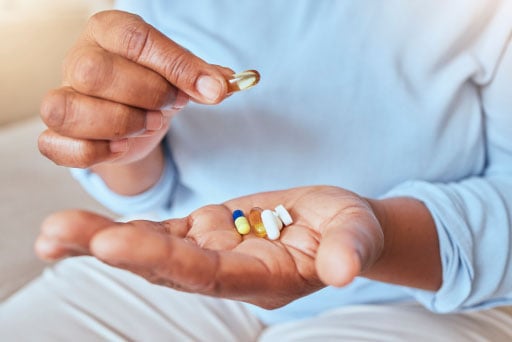BY SYLVESTER OJENAGBON
A young man in our office recently came down with what he self-diagnosed as malaria. Without wasting time, he got himself some antimalarial drugs and started the treatment. Two days later, he was not any better, so he got himself some antibiotics to start treating typhoid since the antimalarial medicine did not seem to be working. By the fifth day, his condition had deteriorated so much that he was rushed to the hospital. But I remember warning from the very beginning that he needed to get a proper diagnosis before treatment. Unfortunately, he thought he knew what was wrong with him and went on the path of self-medication, I believe, as he had done many times before. And this is the story of many Nigerians.
Self-medication is the practice of taking medication to treat oneself without a prescription or the guidance of a qualified healthcare professional. It involves using drugs, herbs, or home remedies to address self-diagnosed ailments or symptoms, or continuing to use a prescribed medication for recurrent or chronic conditions without seeking further medical advice.
And this problem is prevalent globally, with studies indicating rates ranging from 11.7% to 92%. It is, however, most common in developing countries. For example, in Nigeria, studies have shown a high prevalence, with some reporting rates between 52.1% and 92.3%. This simply means that in some communities, almost everyone is at risk of the dangers associated with taking medicines without a prescription or the guidance of a qualified healthcare professional.
Advertisement
Many people commonly self-medicate for headaches/fever, gastrointestinal issues, and respiratory tract infections. Specific symptoms like body aches, fever, coughs, and colds are common reasons for self-medication. In addition, conditions like earaches, burns, and even minor accidents are sometimes treated without a visit to the doctor or hospital.
Even for minor ailments, it is advisable to see a doctor immediately if symptoms are getting worse at any time. Those with pre-existing conditions, like hypertension, diabetes, or asthma, are advised to seek medical care even earlier.
The truth is that over-the-counter drugs are readily available, and this makes it easy for people to self-medicate. Distance to healthcare facilities, lack of time, and financial constraints can lead some to self-medicate as a quicker or more affordable option. Some believe self-medication is safe because they have had positive experiences with it and so continue to practice it.
Advertisement
A lack of knowledge about the potential risks and adverse effects of self-medication can also contribute to its widespread use. Today, some people, especially adolescents and young people, are particularly disposed to self-medication as a result of their access to information on social media and the internet, which may not always be accurate.
Unfortunately, self-medication can lead to complex health challenges. Many ailments share similar symptoms, making it difficult to diagnose the underlying cause without medical expertise. Self-medication based on incorrect self-diagnosis can therefore lead to the wrong treatment, potentially making worse the condition or masking a serious illness.
Taking the wrong dosage or using the wrong route of administration can lead to adverse drug reactions, drug toxicity, and ineffective treatment. Incorrect dosage can also lead to drug resistance if the medication is not taken at the prescribed dose for the recommended duration.
Combining medications, including over-the-counter drugs, with self-medication can result in harmful interactions, especially if the person is not aware of the potential risks. These interactions can increase the risk of adverse reactions, such as allergic reactions, heart problems, and other serious complications.
Advertisement
Self-medication can equally delay seeking proper medical advice and treatment for underlying conditions. This potentially leads to more severe complications. People may mask symptoms with self-medication, thus delaying diagnosis and treatment for more serious conditions.
Overuse and misuse of antibiotics through self-medication contribute to the development of antibiotic resistance. This has become a major global health threat. Antibiotic resistance can lead to more severe infections, longer hospital stays, higher healthcare costs, and increased mortality rates.
Self-medication, especially with substances like alcohol or opioids, can lead to dependence and addiction. People may become reliant on these substances to cope with stress or mental health challenges, and this leads to more health problems.
Self-medication can also worsen pre-existing conditions, particularly mental health issues, if the diagnosis or treatment is not appropriate. Some substances used for self-medication can also interact with or worsen certain mental health conditions.
Advertisement
In addition, self-medication can contribute to a heavier burden on healthcare systems due to the increased need for treatment of complications arising from misuse. This includes the need to treat adverse drug reactions, antibiotic resistance, and other issues related to self-medication.
Combating the problem of self-medication would therefore require a many-sided approach, including increasing access to affordable healthcare, educating the public about the risks, and regulating the dispensing of medications. It should also involve empowering pharmacists with the knowledge and skills to provide effective patient counselling and safe medication practices. Furthermore, addressing the underlying reasons for self-medication, such as cost and limited access to healthcare, is also vital.
Advertisement
Self-medication may offer convenience, cost savings, and relief for minor ailments, especially in areas with limited medical access, but it also carries substantial risks such as incorrect diagnosis, growing threat of antibiotic resistance, and adverse drug reactions. It is therefore important to educate the public about safe practices, enforce stricter regulations on drug sales, and improve healthcare accessibility. That way, the dangers of self-medication will be mitigated, as people are empowered to responsibly manage their health.
Ojenagbon, a health communication expert, lives in Lagos
Advertisement
Views expressed by contributors are strictly personal and not of TheCable.










